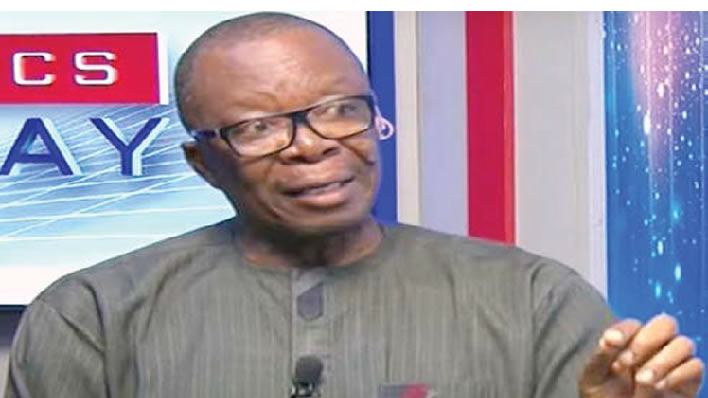
ASUU, in a statement signed by its National President, Prof. Emmanuel Osodeke, on Tuesday after its National Executive Council meeting at the Kaduna State University, Kaduna, explained that universities were not revenue-generating agencies, saying that the obligatory fees paid by students were to provide the necessary tools for them to be properly educated.
The statement said the NEC meeting took place from Saturday, November 11 to Sunday, November 12, 2023, and deliberated on issues affecting the university system and the country.
Osodeke maintained that deducting 40 per cent of IGR from universities would impoverish the university system.
It read, “NEC reviewed the implications of the recent directive to federal universities to remit 40 per cent of their Internally Generated Funds to the coffers of the government. NEC condemns the directive in its entirety because it would further impoverish and emasculate the Nigerian university system.
“For the avoidance of doubt, universities are not revenue-generating agencies because the obligatory fees paid by students are to provide the necessary tools for them to be properly educated. NEC calls on the relevant institutions of state to remove universities from this category of government Ministries, Departments and Agencies regarded as revenue generating centres because of its implications for affordability and accessibility of education in the country.”
ASUU, during the meeting, lamented the deliberate attempt by the Accountant General’s office to further impoverish its members by the refusal to pay their promotion arrears since 2018.
It added, “NEC noted with grave concern the deliberate attempt by the Accountant General’s office to further impoverish our members by the refusal to pay their promotion arrears of majority since 2018.
“NEC also reviewed the unsatisfactory reports on payment of the withheld eight months’ salaries by the government on account of the patriotic strike action of our members in 2022. NEC calls on the Federal Government to unconditionally release all the withheld salaries as a demonstration of the new administration’s desire to permanently resolve all outstanding issues related to the last strike action of our union.”
The statement revealed that NEC was worried about the continued victimisation and onslaught against its members at the Federal University of Technology, Owerri, Ambrose Alli University Ekpoma, Kogi State University, Anyigba, Ebonyi State University, Abakaliki, Lagos State University, Ojo, and others.
It stated that NEC commended the steadfastness of these victimised colleagues in these and other branches, thereby calling on the concerned authorities to respect the fundamental human rights of ASUU members to dignity and freedom of association and expression.
Also, Osodeke in the statement said NEC condemned the unrelenting efforts of the National Universities Commission “to continue with the imposition of the Core Curriculum Minimum Academic Standards on Nigerian universities, despite its documented shortcomings and rejection by university Senates and academic/professional associations. NEC reaffirms its position to pursue the rejection of CCMAS to a logical conclusion.”
The statement reiterated its earlier position on the wrongful dissolution of Governing Councils of universities without recourse to the laws establishing them.
ASUU also condemned successive governments’ failure to honour several agreements reached with the union, especially the renegotiation of the 2009 FGN/ ASUU Agreement.
Meanwhile, ASUU said the NEC meeting coincided with this year’s Heroes Day, which was a day set aside for honouring members of ASUU who had made tremendous contributions to the development of the union as well as those that paid the supreme price in the service of the union and for a better education system in the country.
It added, “The Heroes’ Day was marked with a special lecture titled “Economic Crises, Government Responses and the Tertiary Education in Nigeria” delivered by Professor Sheriffdeen Tella and the award of scholarships to selected indigent but brilliant students in all public universities in Nigeria.”





